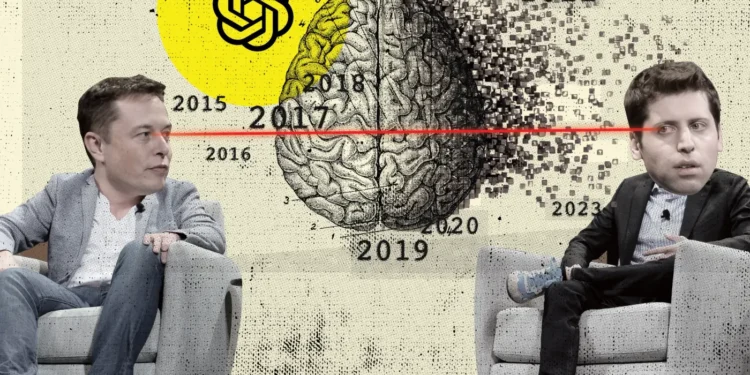Elon Musk has filed a lawsuit against OpenAI, its co-founders Sam Altman and Greg Brockman, and affiliated entities, accusing them of violating their original contractual agreements by prioritizing profits over the non-profit organization’s mission to develop AI for the benefit of humanity.
Musk, an early supporter of OpenAI, claims that Altman and Brockman persuaded him to help establish and fund the startup in 2015 under the premise that it would operate as a non-profit entity, aimed at addressing the competitive threat posed by Google.
However, Musk alleges that OpenAI has since shifted towards a for-profit model, particularly through its partnership with Microsoft, the world’s most valuable company. The lawsuit asserts that OpenAI has transitioned into a closed-source subsidiary of Microsoft, focusing on refining artificial general intelligence (AGI) to maximize profits for Microsoft, rather than advancing AI for the betterment of society.
According to Musk’s legal complaint, he donated over $44 million to OpenAI between 2016 and September 2020, making him the organization’s largest contributor during that period.
The lawsuit, filed in a San Francisco court, revolves around OpenAI’s latest natural language model, GPT-4, which Musk contends qualifies as AGI. He alleges that OpenAI and Microsoft have improperly licensed GPT-4, despite previous agreements that OpenAI’s AGI capabilities would remain non-profit and dedicated to humanitarian goals.
Musk seeks to compel OpenAI to adhere to its original mission and prohibit the monetization of technologies developed under its non-profit status for the benefit of OpenAI executives or partners like Microsoft.
Furthermore, the lawsuit requests the court to recognize AI systems such as GPT-4 as constituting artificial general intelligence beyond licensing agreements. Musk also demands injunctions to enforce OpenAI’s compliance, along with accounting and potential restitution of donations if the court finds that the organization now operates for private gain.
The legal action alleges that Altman hand-picked a new board lacking technical expertise or significant background in AI governance, replacing the previous board deliberately designed with such expertise. The new board members are described as having more experience in profit-centric enterprises or politics than in AI ethics and governance.
The lawsuit marks a significant escalation of tensions between Musk and OpenAI, reflecting broader debates surrounding the commercialization and ethical implications of AI development.









